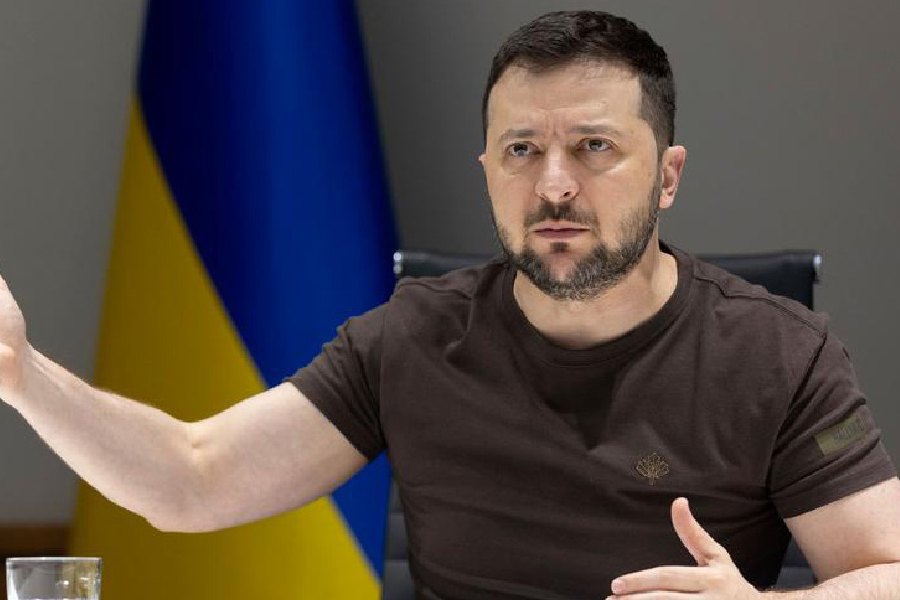President Volodymyr Zelensky of Ukraine said he visited the flood-stricken Kherson region on Thursday, where rescue efforts pushed ahead after the destruction of a dam on the Dnipro river, as he called for “a clear and quick global response” to the disaster.
An explosion early on Tuesday at the Kakhovka dam sent a torrent of water from a reservoir upstream coursing down the river, flooding much of the Ukrainian-controlled city of Kherson and dozens of settlements on both sides of the Dnipro, an active war zone that cuts through Russian- and Ukrainian-controlled territory.
“I visited a crossing point where people are being evacuated from flooded areas,” Zelensky said in a statement on the Telegram messaging app, in which he thanked rescue workers. “Our task is to protect lives and help people as much as possible.”
As of Thursday morning, the average flood level in the Kherson region stood at more than 18 feet, Ukrainian regional officials said, adding that about 230 square miles remained underwater in a region that spreads across 11,000 square miles.
Of the area underwater, 32 per cent is on the Ukrainian-controlled west bank and 68 per cent on the Russian-controlled east bank, said Oleksandr Prokudin, the head of Ukraine’s regional military administration in Kherson.
Russian-appointed officials in the occupied city of Nova Kakhovka, adjacent to the dam, said that five people had died in the flooding, the Russian state-run RIA Novosti news agency reported. Dozens more in Russian territory were hospitalised, officials said.
The Dnipro marks a dividing line between Russian and Ukrainian forces in parts of the region, and officials and residents said that Russian shelling across the river has impeded humanitarian efforts. On Wednesday, Zelensky called for “a clear and quick global response” to the flooding and criticised international agencies that were “not capable of taking action”.
“Every death over there marks an indictment of the existing international mosaic, of international organisations which have got out of the habit of saving lives,” Zelensky said.
During peacetime, it is not uncommon for international aid agencies to mobilize quickly and organize a relief effort, as they did after the deadly earthquakes struck Syria and Turkey in February. But providing assistance is much more complicated in a war zone.
New York Times News Service











